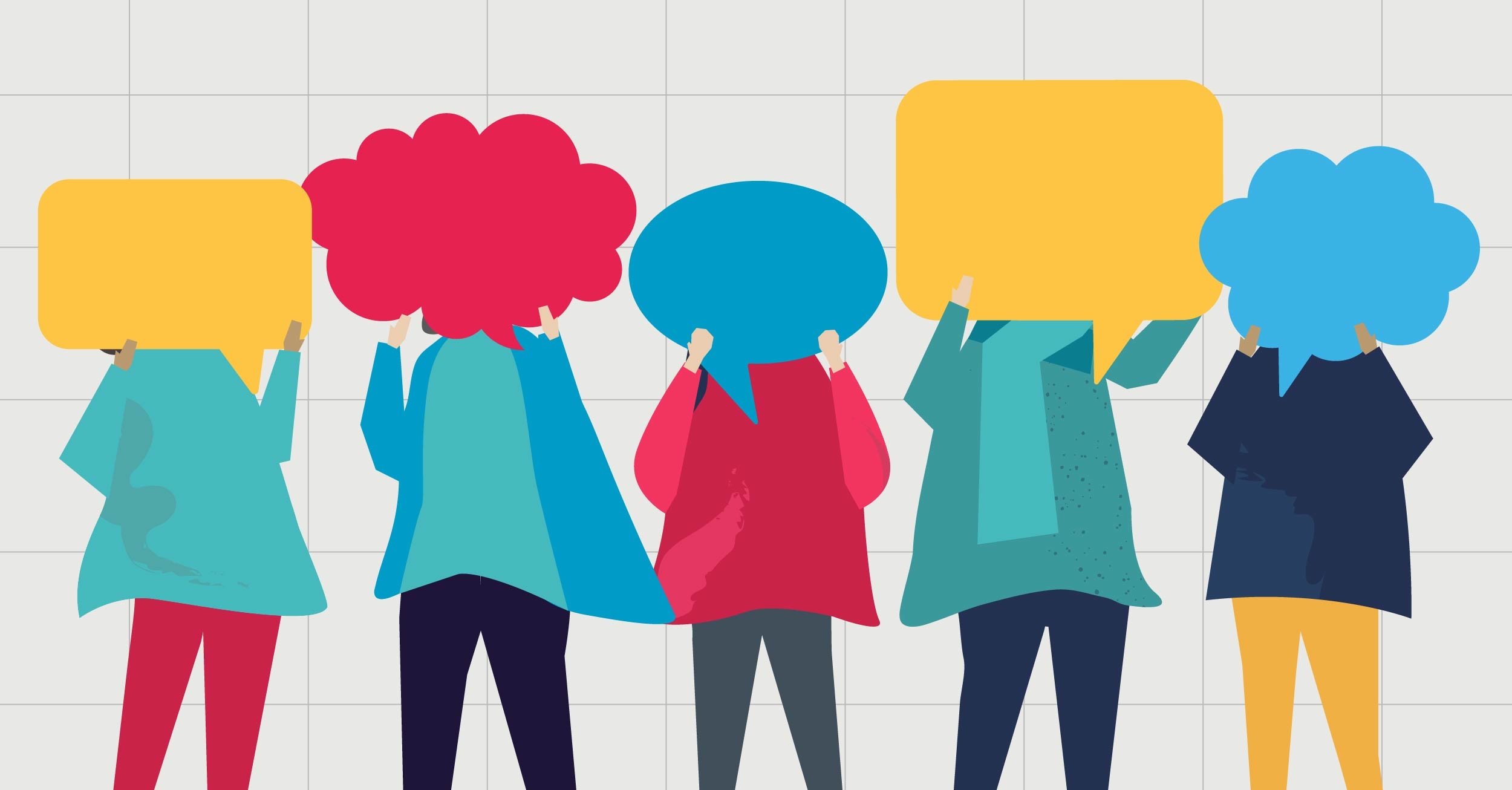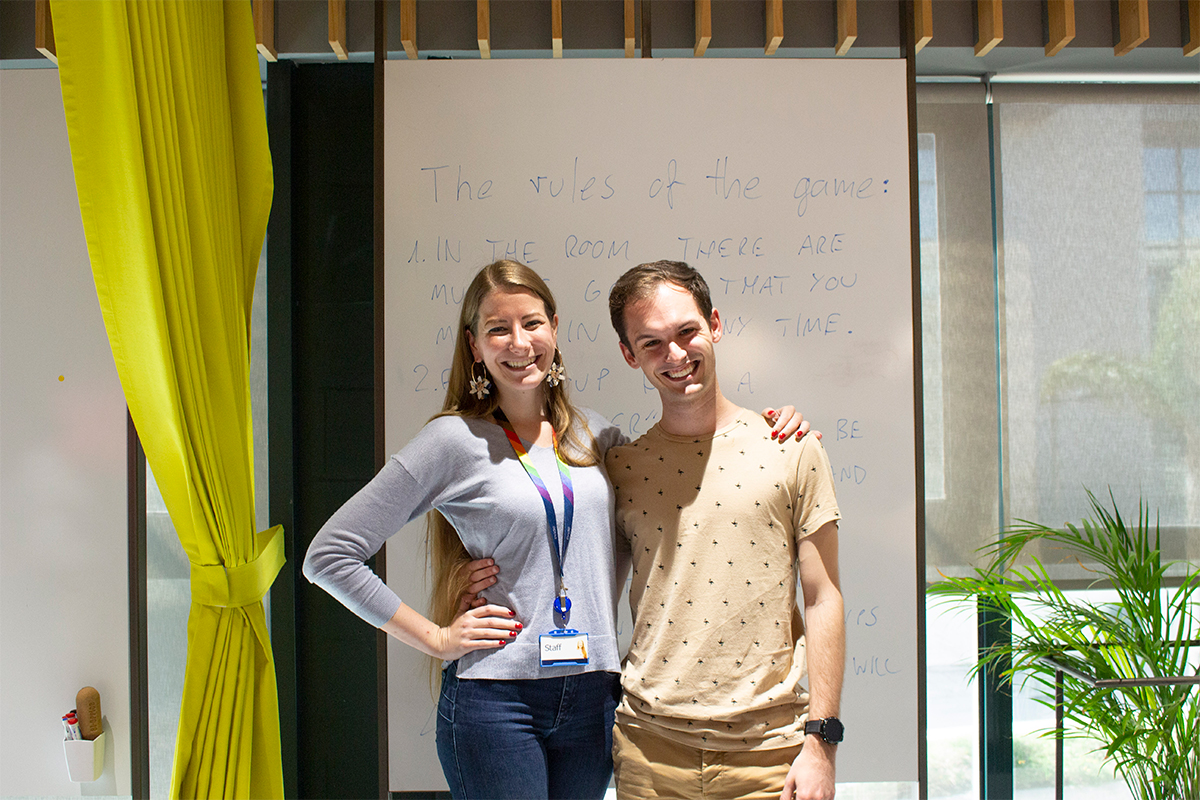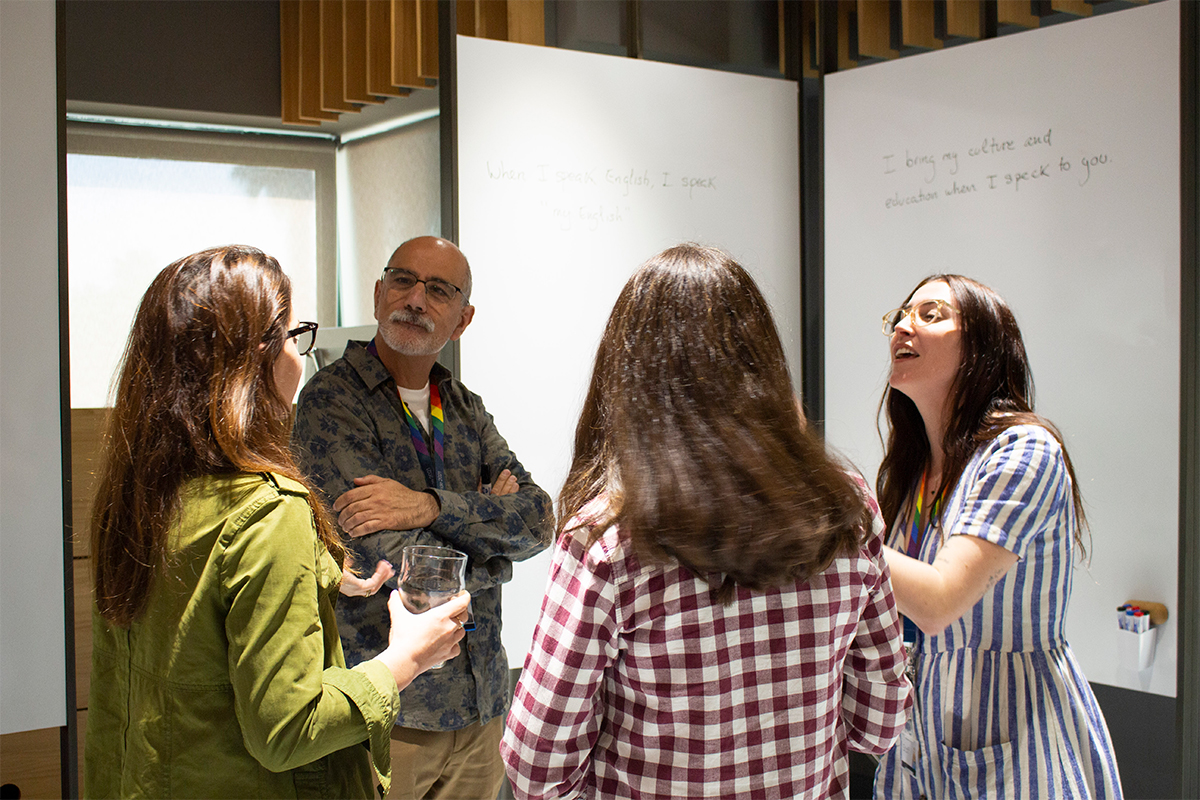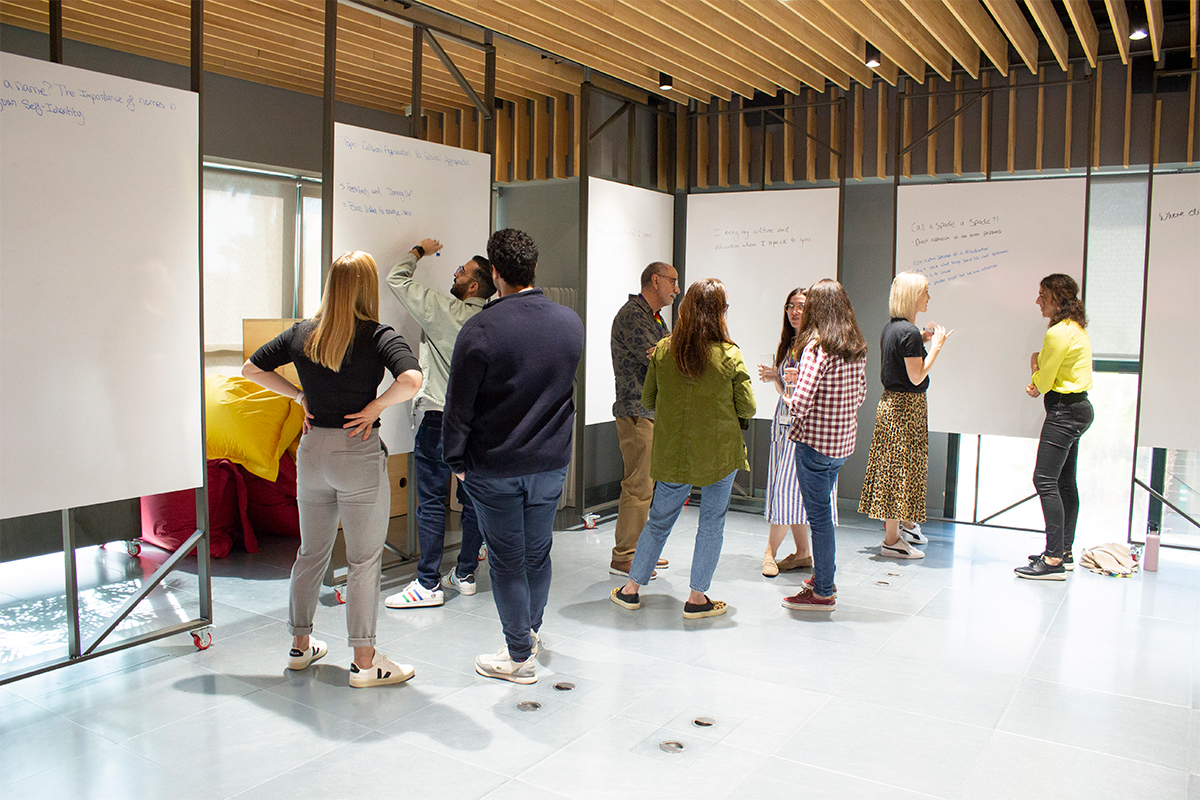
Each of us brings our unique social and cultural paradigm to work with us each day, influencing how we operate and communicate – even how we think. As today’s workplaces become ever-more diverse and cosmopolitan, cross-cultural awareness is more important than ever. And by taking conscious action to increase self-knowledge and cross-cultural skills in the workplace, we can equip ourselves to build stronger professional relationships, improve team dynamics and take our productivity to the next level.
This spring, our Belonging, Inclusion & Diversity Community hosted its first interactive workshop to achieve exactly that. With the title of ‘Communication Differences & Conscious Language,’ this interactive session opened up multiple avenues of enriching discussion around culture, language and identity. Facilitators Sebastian Skoczeń and Justine Charlet, along with individual topic leaders, opened the floor to encourage sharing and brainstorming around issues like cultural appreciation vs. appropriation, how communication styles are impacted by culture, the importance of inclusive speech and more.
When I speak English, I speak ‘my English’
One of the session’s most fruitful and fascinating discussions opened up around English as a second language. In global organisations like The Workshop – and particularly in tech – it’s common to have a high number of employees for whom English is their second language. In these cases, it’s important to recognise that the onus of good communication rests with both parties.
When working with someone for whom English is a second language, native English speakers have an opportunity to take the lead by cultivating an approach of adaptability and patience, reaching out across imperfect grammar and vocabulary to connect the dots and improve the flow of communication. This compassionate approach will often, in turn, make non-native speakers feel confident diving in, focusing on the task at hand and building fluency along the way. This is a great example of how a simple shift of perspective towards collaboration and compassion often leads to improved overall efficiency.

Invisible boundaries
Another of the session’s most popular topics was the subject of direct vs. indirect communication.
This discussion, led by The Workshop’s Head of Business Partnering, Sarah Udall, highlighted the fact that cultural communication paradigms can pose challenges even when speaking the same language – and without any obvious ‘barriers’ in place.
For instance, English business culture is steeped in acute politeness, with frequent apologies and shows of courtesy being the norm. Meanwhile, many other Western cultures take a more direct approach, with the primary goal being to move projects forward quickly and efficiently. While this direct approach might be perceived as rude by an English person, indirect English politeness might equally be perceived as frustrating by someone from a more direct culture. Ultimately, the most important thing to remember when working across cultures is that there is no right or wrong. The solution is always adaptability, self-awareness and a commitment to moving together in the right direction.
Next Steps
Through this afternoon of informal and open discussion, each group in the ‘Communication Differences & Conscious Language’ session arrived at valuable, actionable takeaways. After the session, organisers and topic leaders prepared high-level summaries to share with our entire organisation, and further sessions have been scheduled to maintain the positive momentum.
Even after this rewarding first session, it’s clear there’s plenty more to be uncovered and discussed. But by tapping into the innate wisdom of our workforce, recognising and working through our vulnerabilities, we’ll be better able to navigate cross-cultural communication and build towards an even more inclusive workplace.



